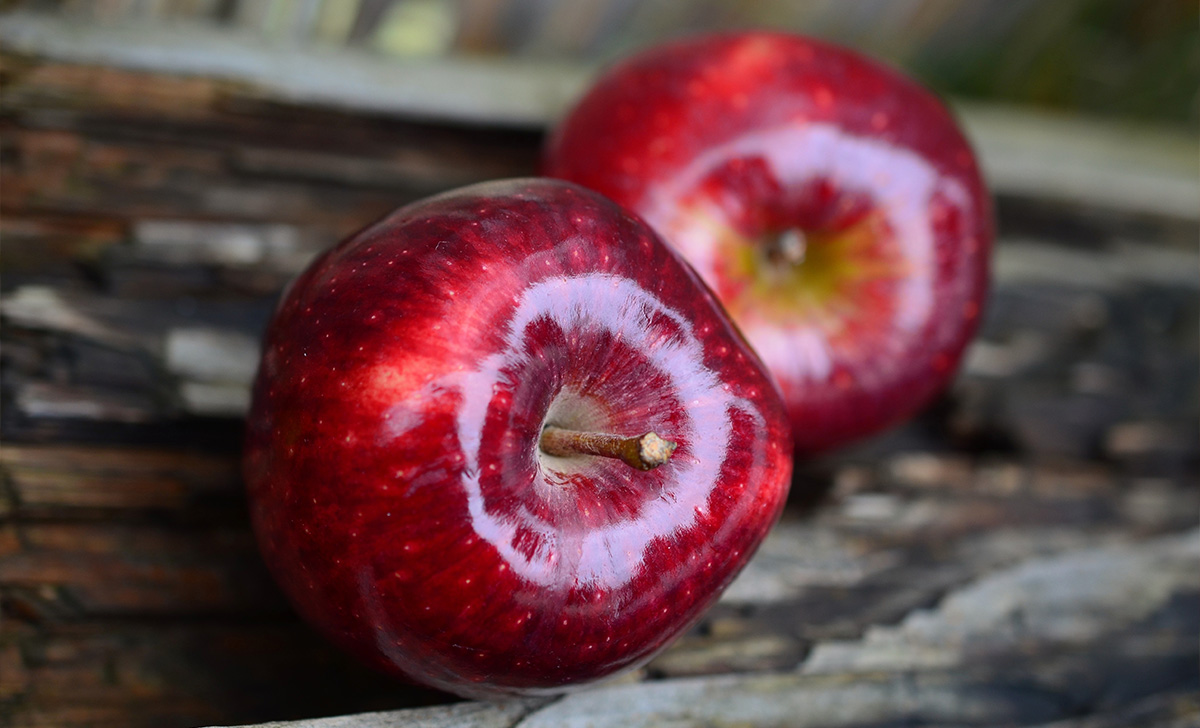Our grandparents were well aware of the saying “an apple a day keeps the doctor away”. In this case, the apple is meant to be a metaphor for a natural and healthy diet, an important starting point for our health. However, some recent studies examine the apple as a fruit (malus domestica), underlining properties that may be useful for future therapies.
Apple is an important source of flavonoids and other essential phytonutrients for our body. Flavonoids are also present in olive oil and chocolate, pears, tea or red wine. After being ingested, most flavonoids interact with the intestinal microbiome (the set of bacteria in our body) and modulate their action. Phytonutrients such as resveratrol can also be found in apples and other fruits and play an important protective role in the brain as well. By studying apples, researchers made this important discovery: an apple a day keeps the doctor away and could help us with this important age problem.
How do apples get that shape?
Apples are not simply spherical: they have a small dimple (cusp) at the top, at the level of the stem. In a work published in Nature Physics in recent days (Chakrabarti A et al, 2021), researchers have managed to develop a mathematical model that allows them to understand how apples develop into the shape we know. Biological forms are often organized by the presence of structures that act as focal points. The apple cusp is one of them. The study of focal points (or singularities) has very important repercussions on numerous scientific fields, from cosmology to fluid dynamics and leads to universal structures.
This is why the study of a humble apple could also be important in other very different fields.
An apple a day keeps the doctor away and could help us with this important age problem
In another recently published study (Ichwan M et al, 2021), scientists discovered how high concentrations of phytonutrients in apples are able to stimulate the formation of new neurons. In particular, high concentrations of two of these phytonutrients (quercetin and dihydroxybenzoic acid), placed in a mouse stem cell culture, generated more neurons and protected the cells from cell death.
Furthermore, if the mice were given the two phytonutrients, the stem cells present in two areas of the brain associated with memory and learning multiplied. Faster and they also generated more neurons. These neurogenesis effects are similar to those developed following exercise. That’s why it’s also important to combine exercise with a balanced diet.
Further studies are needed to understand if these phytonutrients can improve learning and cognitive function, or if they can be used in neurodegenerative diseases such as Alzheimer’s and dementia. Several evidences in previous studies suggest that polyphenols, antioxidants and vitamins present in apples may improve cognitive processes in the elderly.
